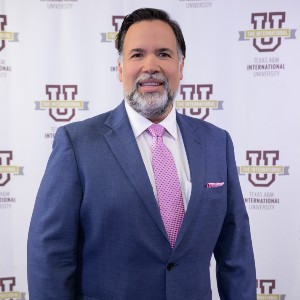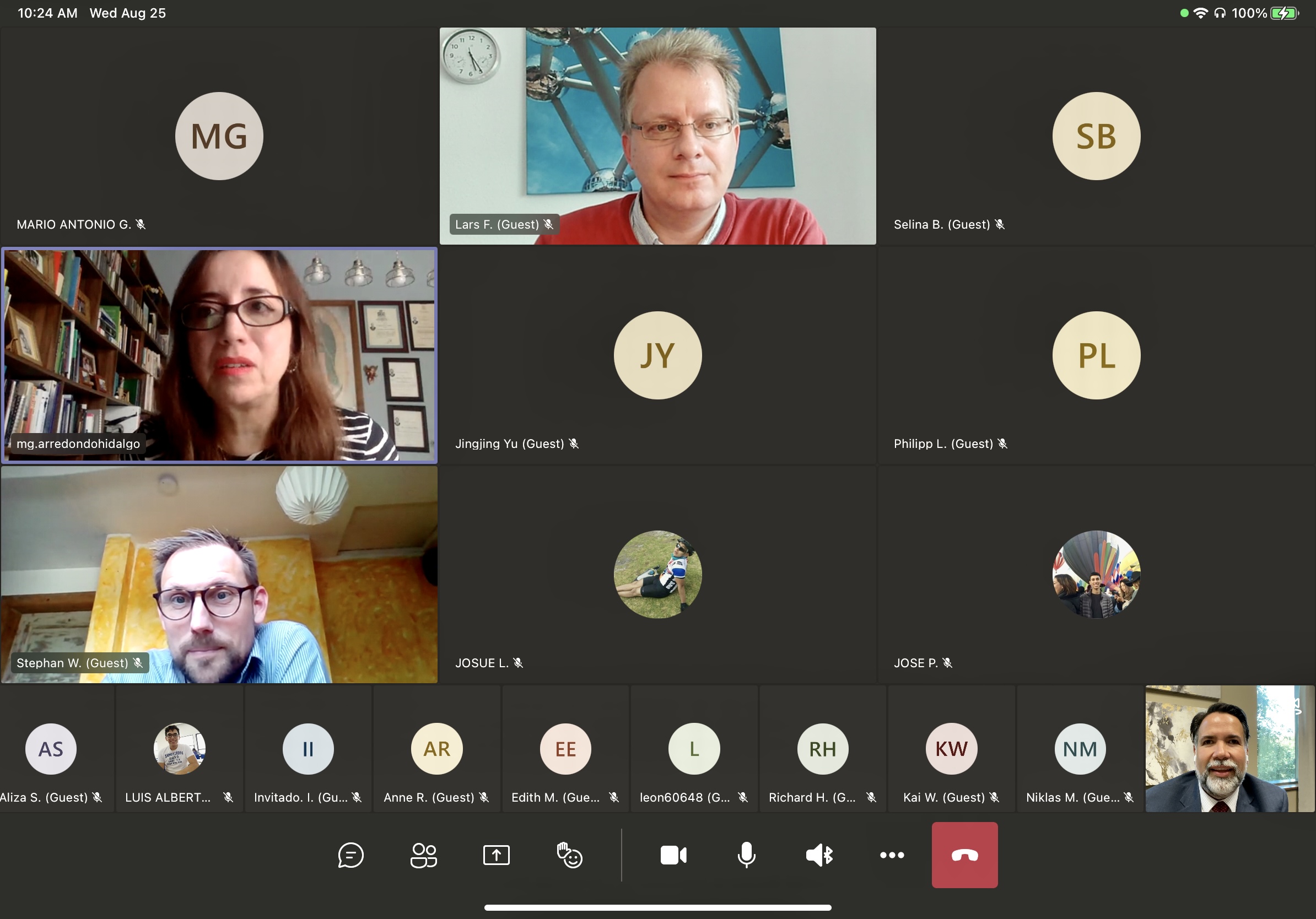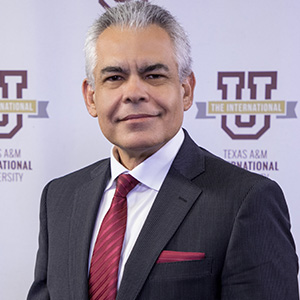TAMIU’s Texas Center’s Reach Goes Global in Germany, Mexico

While the word “international” anchors Texas A&M International University’s (TAMIU) name, its classroom lessons are equally global -- and can impact students at campuses in Germany and México.
Dr. Daniel Covarrubias, TAMIU director of the Texas Center for Border Economic and Enterprise Development, recently delivered a class on logistics clusters, “Port Laredo Logistics Cluster and the Impact of Technology on Logistics” to nine German students and two professors from the Fachhochschule Dortmund (Dortmund University of Applied Science and Arts) and 18 Mexican students and two professors from the Universidad de Guanajuato.
Delivered using Microsoft Teams, Covarrubias’ presentation focused on the significance of what Port Laredo means to world trade as it processes yearly more than $205 billion of trade and more than 4.5 million trucks.
“I also discussed the logistics cluster formed here in Laredo with more than 500 custom brokers and more than 500 transport companies, plus the more than 300 logistics and warehouse companies on both sides of the border. I discussed the impacts that technology is having on logistics, explaining how the exponential technologies of Logistics 4.0 guide the composition of Smart Supply Chains, allowing companies to forecast highly accurate demand, adjust their inventories accordingly and reduce costs and time to market products and services,” Covarrubias noted.
The group of students is part of a Dortmund University program, the InduTwin Bachelor program. It aims to be the standard for dual education, producing synergies with real-work experience and theoretical knowledge. Participating students earn a double bachelor’s degree that allows them significant international expertise in Digitalization, Industry 4.0, and Logistics.
Covarrubias said he sensed that the students from both countries were not only intrigued by the international business strengths of the Gateway City, but by the University’s role in teaching to those strengths and researching ways to maintain them.
“It was clear that this helped affirm not only the importance of their studies and their future place in global business -- but also the pivotal role that higher education entities like TAMIU play in vital research and teaching that can truly help to sustain business successes,” he observed.
The Texas Legislature established the Texas Centers for Border Economic and Enterprise Development by an act passed by the 71st Legislature (1989). House Bill (HB) 2974 was approved in June 1989, and became effective in September 1989, as a consortium between TAMIU, the University of Texas Pan-American, and the University of Texas-El Paso.
Since 1989, TAMIU’s Texas Center has provided leadership and support to Texas border communities in their socio-economic development efforts, including activities in the areas of business, education, health care, public administration, and the environment.
It leads activities and data research as an integrating agent for the region's academic, public, and private actors in areas related to economic development and competitiveness. It provides research services to regional economic actors and hopes to transfer knowledge generated through research to society, contributing to the betterment of economic development in Laredo and beyond.
Covarrubias earned his Ph.D. in Business Competitiveness and Economic Development, from Deusto Business School at the University of Deusto in Spain. He holds an MA in Political Science from TAMIU, an MBA from the University of Texas at San Antonio, and a BA in Business Administration from the Instituto Tecnológico y de Estudios Superiores de Monterrey. His research is centered on Cross-Border Regional Development, Regional Innovation Systems, Clusters, and Territorial Development Policies.
For additional information, visit the Center at texascenter.tamiu.edu, email Dr. Covarrubias at dcova@tamiu.edu, call 956.326.2520, or visit offices located at TAMIU in Anthony J. and Georgia A Pellegrino Hall, room 216.

Dr. Daniel Covarrubias recently delivered a class via Microsoft Teams to students and faculty from Germany and Mexico.


